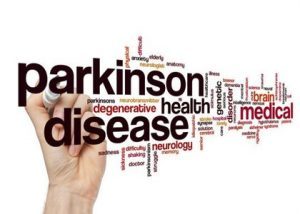- Home
- Editorial
- News
- Practice Guidelines
- Anesthesiology Guidelines
- Cancer Guidelines
- Cardiac Sciences Guidelines
- Critical Care Guidelines
- Dentistry Guidelines
- Dermatology Guidelines
- Diabetes and Endo Guidelines
- Diagnostics Guidelines
- ENT Guidelines
- Featured Practice Guidelines
- Gastroenterology Guidelines
- Geriatrics Guidelines
- Medicine Guidelines
- Nephrology Guidelines
- Neurosciences Guidelines
- Obs and Gynae Guidelines
- Ophthalmology Guidelines
- Orthopaedics Guidelines
- Paediatrics Guidelines
- Psychiatry Guidelines
- Pulmonology Guidelines
- Radiology Guidelines
- Surgery Guidelines
- Urology Guidelines
Increased antibiotics use linked to Parkinson's disease

Gut microbiota alterations have been found in prodromal and established Parkinson's disease (PD). Antibiotic exposure can have long‐term effects on the composition of human intestinal microbiota, but a potential connection between antibiotic exposure and risk of PD has not been studied previously.
Researchers at Helsinki University Hospital, Finland have found that higher exposure to commonly used oral antibiotics is linked to an increased risk of Parkinson's disease.The strongest associations were found for broad-spectrum antibiotics and those that act against anaerobic bacteria and fungi and the timing of antibiotic exposure also seemed to matter.The study has been published in Movement Disorders.
The study suggests that excessive use of certain antibiotics can predispose to Parkinson's disease with a delay of up to 10 to 15 years. This connection may be explained by their disruptive effects on the gut microbial ecosystem.
"The link between antibiotic exposure and Parkinson's disease fits the current view that in a significant proportion of patients the pathology of Parkinson's may originate in the gut, possibly related to microbial changes, years before the onset of typical Parkinson motor symptoms such as slowness, muscle stiffness and shaking of the extremities. It was known that the bacterial composition of the intestine in Parkinson's patients is abnormal, but the cause is unclear. Our results suggest that some commonly used antibiotics, which are known to strongly influence the gut microbiota, could be a predisposing factor," says research team leader, neurologist Filip Scheperjans MD, PhD from the Department of Neurology of Helsinki University Hospital.
In the gut, pathological changes typical of Parkinson's disease have been observed up to 20 years before diagnosis. Constipation, irritable bowel syndrome and inflammatory bowel disease have been associated with a higher risk of developing Parkinson's disease. Exposure to antibiotics has been shown to cause changes in the gut microbiome and their use is associated with an increased risk of several diseases, such as psychiatric disorders and Crohn's disease. However, these diseases or increased susceptibility to infection do not explain the now observed relationship between antibiotics and Parkinson's.
"The discovery may also have implications for antibiotic prescribing practices in the future. In addition to the problem of antibiotic resistance, antimicrobial prescribing should also take into account their potentially long-lasting effects on the gut microbiome and the development of certain diseases," says Scheperjans.
The possible association of antibiotic exposure with Parkinson's disease was investigated in a case-control study using data extracted from national registries. The study compared antibiotic exposure during the years 1998-2014 in 13,976 Parkinson's disease patients and compared it with 40,697 non-affected persons matched for the age, sex and place of residence.
Antibiotic exposure was examined over three different time periods: 1-5, 5-10, and 10-15 years prior to the index date, based on oral antibiotic purchase data. Exposure was classified based on the number of purchased courses. Exposure was also examined by classifying antibiotics according to their chemical structure, antimicrobial spectrum, and mechanism of action.
For more details click on the link: http://dx.

Disclaimer: This site is primarily intended for healthcare professionals. Any content/information on this website does not replace the advice of medical and/or health professionals and should not be construed as medical/diagnostic advice/endorsement or prescription. Use of this site is subject to our terms of use, privacy policy, advertisement policy. © 2020 Minerva Medical Treatment Pvt Ltd